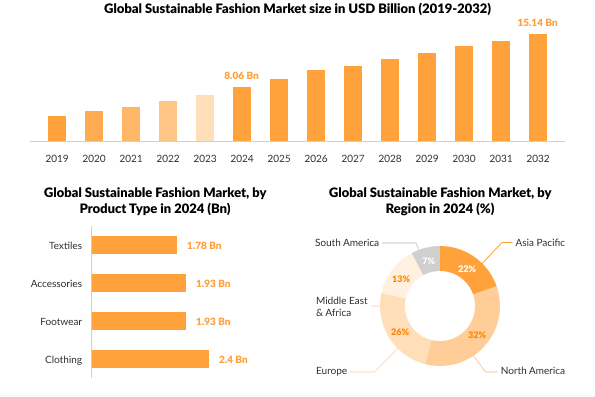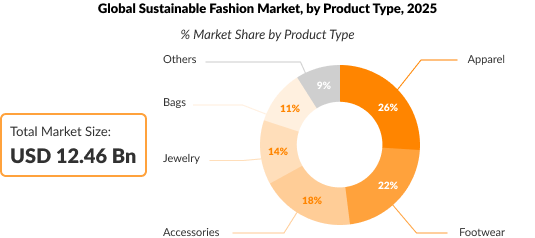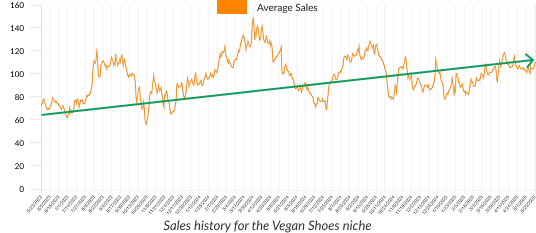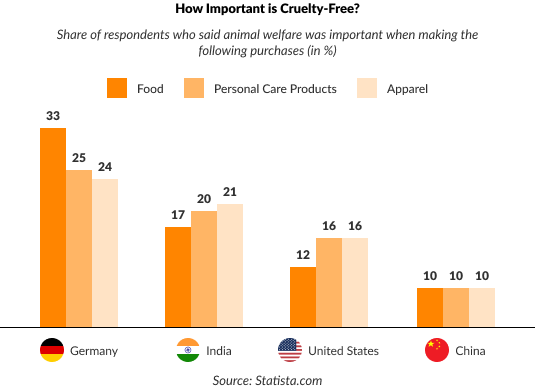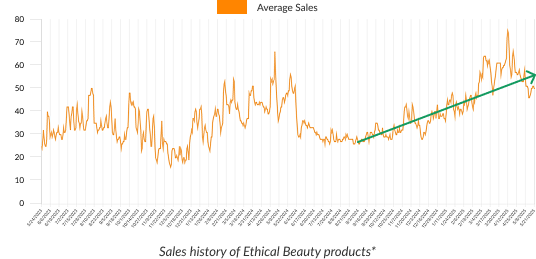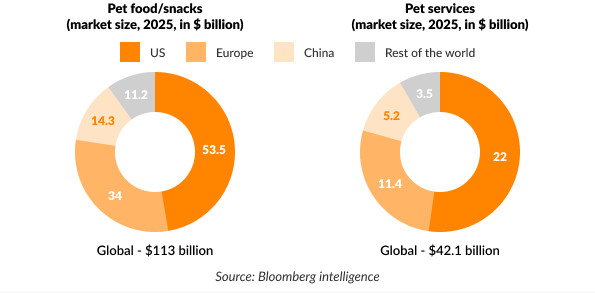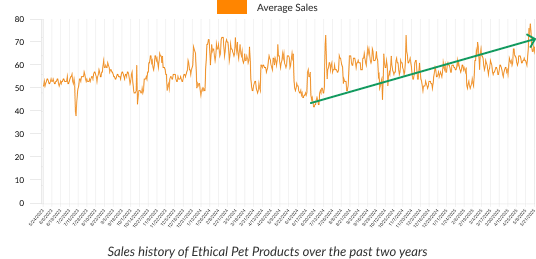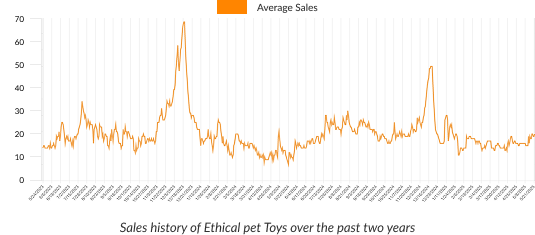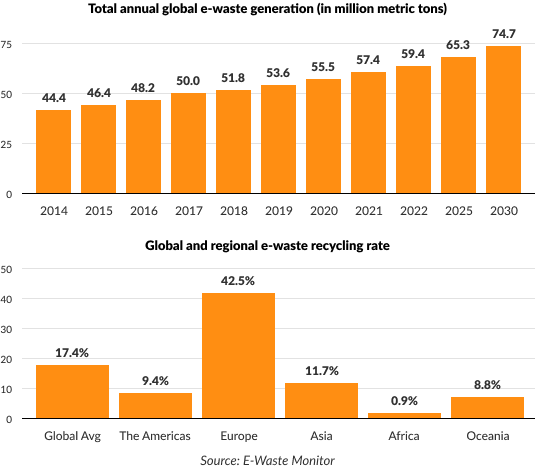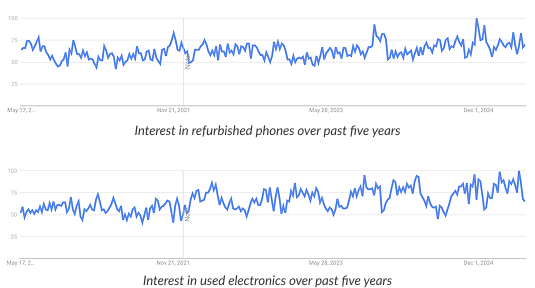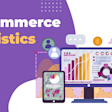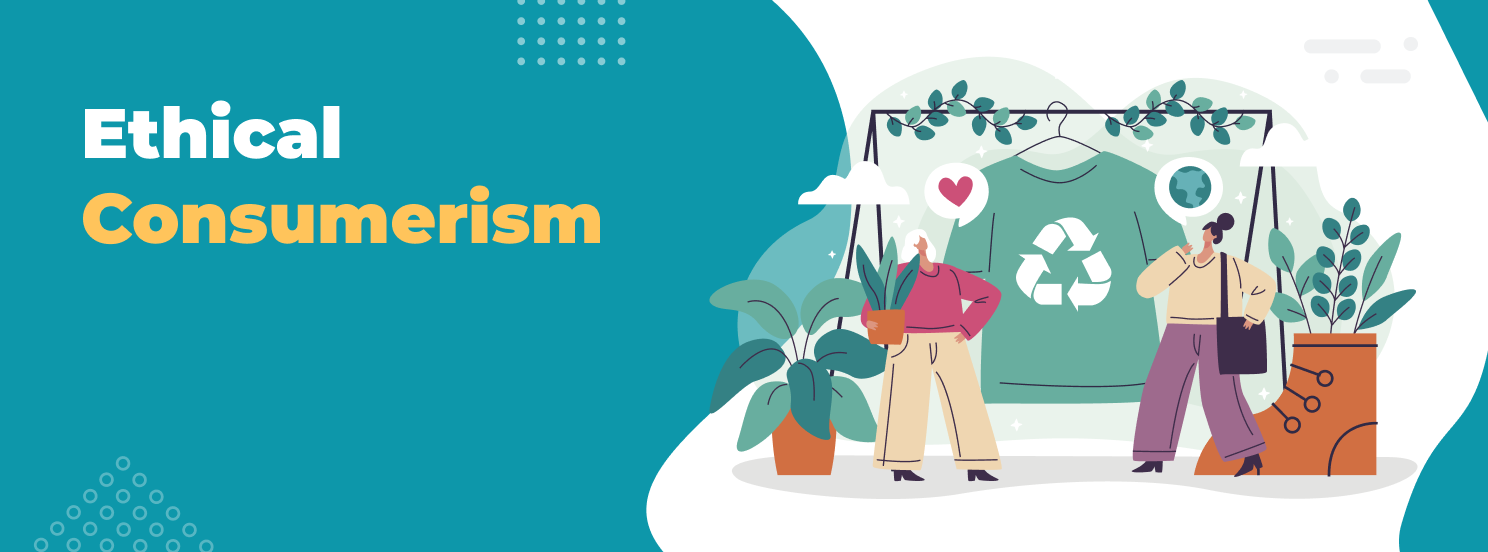
Understanding Ethical Consumerism: A Seller’s Essential Guide
This article on ethical consumerism is drawn from our monthly insider report, a go-to resource our community receives each month, packed with sharp insights and a handpicked list of top-selling products. Think of it as your ethical edge in an ever-changing marketplace. You can read the full report here.
In today's digital marketplace, ethical commerce is more than a buzzword, it's a business imperative. “Ethical commerce” refers to the practice of conducting online business in a manner that is socially responsible, environmentally sustainable, and transparent. This encompasses fair labor practices, eco-friendly operations, and honest marketing. For Amazon sellers and e-commerce entrepreneurs, embracing ethical commerce can help to differentiate their brand and build lasting customer trust.
The Rise of Ethical Consumerism
Consumer demand for ethical practices is on the rise. According to a report by NielsenIQ, 64% of global consumers consider sustainability when making a purchase, and 47% are willing to pay more for sustainable products.
This shift is not just about environmental concerns; it's also about social responsibility.
Amazon's Commitment to Ethical Commerce
Amazon has also taken steps to support ethical commerce through various initiatives. For instance, the Amazon Launchpad Sustainability Accelerator supports early-stage startups that offer sustainable products in Europe. Participants receive mentorship, access to Amazon's resources, and support with bringing their eco-friendly products to market.
Additionally, Amazon has made strides in reducing its environmental impact. In October 2024, the company announced the elimination of plastic air pillows from its global fulfillment centers, a move praised by environmental groups for reducing plastic pollution.
Advantages for Sellers Embracing Ethical Commerce
For sellers, adopting ethical commerce practices offers several benefits, such as:
Enhanced Brand Loyalty: Consumers are more likely to support brands that align with their values.
Competitive Advantage: Differentiating your products through ethical practices can set you apart in a crowded marketplace.
Access to New Markets: Eco-conscious consumers actively seek out sustainable products, opening up new customer segments.
Long-Term Sustainability: Ethical practices contribute to a more sustainable business model, potentially reducing costs and risks over time.
Incorporating ethical commerce into your business strategy is not just good for the planet and society, but it's also good for business.
Ethical Fashion
Ethical fashion is gaining momentum in the U.S., driven by consumers who want their clothing choices to reflect values like sustainability, fair labor, and animal welfare. It’s not just about what clothes are made of, but rather how they’re made and under what conditions. Ethical fashion focuses on reducing harm to people and the planet, and this movement is growing quickly. The global market is projected to reach over $20 billion by 2033, showing that this is not just a trend, but a long-term shift in how people shop.
Sustainable fashion plays a major role in this shift. It involves using eco-friendly materials like organic cotton, hemp, or recycled fibers, while also reducing waste, energy use, and harmful chemicals. Certifications like GOTS (Global Organic Textile Standard) help consumers identify clothing made with 70% or more organic materials, and no toxic dyes or GMOs. With nearly two-thirds of U.S. consumers considering sustainability in their buying decisions, it’s clear that these things matter to shoppers.
Vegan fashion is another important part of the ethical movement. These products avoid animal-derived materials like leather and wool, using alternatives such as faux leather made from recycled plastic or plants. This reduces environmental impact and meets the growing demand for cruelty-free options. More shoppers are searching for vegan and ethical clothing online, and platforms like Amazon are responding to this demand.
For example, data from the AMZScout PRO AI Extension reveals a compelling sales history graph showing a steady upward trajectory in the Vegan Shoe niche. This growth clearly reflects a rising wave of conscious consumerism, where more shoppers are choosing ethical shopping habits by buying sustainable, vegan, and eco-friendly products. The surge in demand for these shoes not only highlights how consumers are redefining their consumption behavior but also signals a powerful shift in the fashion industry toward more responsible business practices.
Amazon now features a wide range of ethical fashion options. Its “Amazon Aware” line offers carbon-neutral clothing made from at least 50% recycled or organic materials. Through the “Climate Pledge Friendly” program, Amazon also highlights products that meet trusted sustainability certifications, providing a helpful guide for shoppers seeking greener choices.
Ethical Beauty & Household Products
Ethical Beauty & Household products are crafted without animal testing, synthetic chemicals, or harmful additives, focusing instead on plant-based ingredients, sustainable packaging, and transparent sourcing. Examples of this shift reflect a broader movement toward conscious consumerism, where buyers seek products that align with their values and promote well-being.
The U.S. organic personal care market was valued at approximately $6.31 billion in 2024 and is projected to grow at a compound annual growth rate (CAGR) of 9.5% from 2025 to 2030. This growth is driven by heightened awareness of the potential health risks associated with synthetic chemicals, parabens, sulfates, and artificial fragrances. Similarly, the cruelty-free cosmetics market was valued at $14.84 billion in 2023 and is expected to grow at a CAGR of 6.8% from 2024 to 2030.
Consumers are increasingly willing to invest in products that reflect their ethical standards. A study found that 80% of worldwide consumers are willing to pay more for eco-friendly products. This trend is evident in the rise of clean beauty products, which are characterized by their non-toxic, safe, pure, eco-friendly, sustainable, cruelty-free, vegan, plastic-free, and biodegradable qualities.
As this sales history graph from AMZScout PRO AI Extension reveals, demand for ethical beauty products is soaring, as sales have nearly doubled over the past year. It's a clear signal that conscious consumerism has moved beyond a niche trend and into the mainstream. More and more consumers are embracing ethical shopping, seeking out sustainable, eco-friendly brands that prioritize transparency and positive social impact. This shift in buying behavior not only reflects growing awareness around the environmental and social issues tied to fast fashion and beauty industries but also highlights the tangible benefits for businesses that commit to ethical practices.
Amazon has responded to this demand by featuring a variety of items that are certified organic, cruelty-free, and made with natural ingredients. Amazon's "Climate Pledge Friendly" program also helps consumers identify products that meet sustainability certifications, making it easier to shop responsibly.
Ethical Pet Products
These items include ethical pet foods made without animal testing, pet toys crafted from recycled materials, and pet grooming products that are free from harmful chemicals. The ethical pet product market is expanding rapidly, with the eco-friendly pet products sector valued at $43.65 billion in 2024 and projected to nearly double by 2035.
A significant trend within this movement is the rise of plant-based pet foods. These products offer nutritionally complete diets using plant-based ingredients, catering to pet owners concerned about animal welfare and environmental sustainability. The U.S. plant-based pet food market is experiencing substantial growth, driven by consumer demand for ethical and sustainable alternatives.
According to the AMZScout PRO AI Extension, there has been a powerful shift in consumer behavior: ethical pet products have seen steady demand on Amazon over the past two years. For sellers and businesses navigating the online marketplace, these statistics highlight a valuable opportunity to embrace ethical marketing strategies, promote transparent brand values, and cater to a new generation of consumers who understand the impact of their buying decisions.
Consumer willingness to invest in ethical pet products is evident, with 51% of pet owners willing to pay more for sustainable and responsibly sourced products. This shift in consumer behavior is influencing the market, leading to increased availability of ethical options. For instance, sales of pet products labeled as "ethical" grew by 48%, and "cruelty-free" products increased by 10%, reflecting a strong market response to ethical considerations.
The ethical pet toys category has consistently shown strong demand on Amazon, highlighting a growing trend in conscious consumerism. The steady demand with a few dramatic spikes, as shown by the sales history graph from AMZScout PRO AI Extension, signals a valuable opportunity for sellers and brands committed to ethical business practices.
For the most part, sales remain steady, reflecting a growing base of pet owners who prioritize sustainable and ethical choices. Notably, there were two significant surges: one in late 2022 and another in late 2023. These peaks likely correspond with major shopping periods such as Black Friday or the holiday season, when consumers are more inclined to purchase gifts, including for their pets.
Hence, by offering affordable, eco-conscious pet products, companies can not only meet the rising consumer demand but also make a positive impact on the environment and animal welfare, proving that ethical consumption and successful marketing go hand in hand.
Ethical pet toys are made from recycled materials, while other categories include plant-based pet foods and eco-friendly grooming supplies. Amazon's "Climate Pledge Friendly" program also helps consumers identify products that meet sustainability certifications, making it easier to shop responsibly.
Ethical Technology Products
Ethical technology products are designed with considerations such as energy efficiency, responsible sourcing of materials, and transparent corporate practices. For instance, companies like Fairphone focus on modular smartphones that are easier to repair and are made with conflict-free materials. Similarly, brands like Nimble offer tech accessories made from recycled materials, emphasizing both functionality and environmental responsibility.
The global digital ethics market, which encompasses ethical practices in technology, was valued at USD 146.3 million in 2023 and is projected to reach USD 1,421.2 million by 2030, growing at a compound annual growth rate (CAGR) of 35.6% from 2024 to 2030. This growth indicates a rising demand for technology products that align with ethical standards, reflecting consumers' increasing awareness and concern about the social and environmental impacts of their purchases.
Ethical commerce is no longer a niche idea. It's a growing movement that influences how people shop across categories, from fashion and beauty to pet supplies and technology. The definition of ethical commerce is evolving as more consumers demand transparency and responsibility.
For Amazon sellers, shifting to ethical products offers a real opportunity. By offering more ethical and sustainable options, sellers can stand out in a crowded marketplace, build stronger customer loyalty, and align with long-term trends that are shaping the future of e-commerce. Making the switch may take some effort, but it can also lead to meaningful benefits for both business and the world.
Conclusion
As the ethical commerce movement gains momentum across every major product category, the message is clear: conscious consumerism is here to stay and it’s growing fast. For sellers ready to adapt, this is more than a feel-good initiative; it’s a competitive edge. Tools like AMZScout offer invaluable insights, from real-time sales data to niche trend forecasts, helping sellers identify high-potential ethical products and confidently enter markets that align with consumer values.

